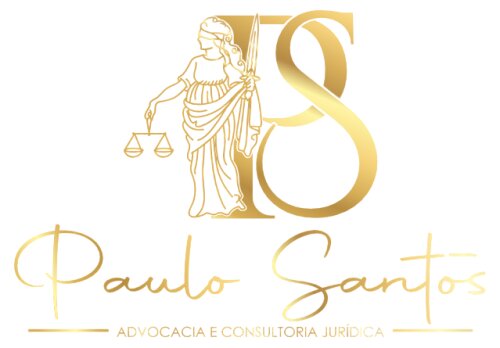Best Sanctions & Export Controls Lawyers in Brazil
Share your needs with us, get contacted by law firms.
Free. Takes 2 min.
Or refine your search by selecting a city:
List of the best lawyers in Brazil
About Sanctions & Export Controls Law in Brazil
Sanctions and export controls law in Brazil encompasses a set of rules, regulations, and government policies designed to regulate the international trade of goods, technologies, and services. These laws serve to ensure that Brazilian exports and imports comply with both national standards and international obligations, such as sanctions imposed by the United Nations or other multilateral bodies. Brazil has established mechanisms to restrict or control the movement of strategic goods, dual-use items, military equipment, and sensitive technologies, aiming to preserve national security, prevent terrorism, and comply with international commitments.
Why You May Need a Lawyer
There are a variety of circumstances in which individuals or companies might require legal advice regarding sanctions and export controls in Brazil. Common scenarios include:
- Uncertainty regarding whether a specific item or technology is subject to export controls or licensing requirements.
- Concerns about potential violations of Brazilian or international sanctions when trading with certain countries, companies, or individuals.
- Advice on how to respond to government investigations or enforcement actions related to suspected sanctions breaches.
- Need for compliance programs to prevent sanctions or export control violations.
- Due diligence during mergers, acquisitions, or partnerships involving foreign companies.
- Confusion about overlapping Brazilian and international export control regimes.
- Penalties, fines, or restrictions imposed due to non-compliance with export control laws.
- Seeking guidance on participation in government contracts or tenders that involve controlled items or sensitive technologies.
In all these situations, a lawyer with expertise in sanctions and export controls can help navigate complex regulations, minimize legal risks, and ensure transactions are compliant with all applicable laws.
Local Laws Overview
Brazil enforces sanctions and export controls through several laws and regulations. The legal framework is influenced by both domestic priorities and Brazil's commitments as a member of international organizations such as the United Nations and the World Trade Organization.
- Sanctions: Brazil adopts and implements sanctions primarily based on United Nations Security Council resolutions. Additional restrictive measures may apply as defined by Brazilian authorities for foreign policy or national security reasons.
- Export Controls: Export controls are governed by the Export Control System for Sensitive Goods, implemented by the Ministry of Science, Technology and Innovation (MCTI), the Ministry of Defence, and the Ministry of Foreign Affairs. The focus is on dual-use goods, nuclear materials, chemical and biological items, and military goods.
- Licensing: Export of certain goods may require government authorization or licenses, especially if those goods can be used for military purposes or if they appear on control lists.
- Reporting Duties: Companies and individuals must keep accurate records and submit reports when dealing with controlled items to relevant authorities.
- Penalties: Non-compliance can lead to administrative penalties, heavy fines, loss of export privileges, and even criminal prosecution in serious cases.
It is essential for anyone involved in international trade from Brazil to understand the specific requirements that apply to their transactions, as rules change frequently and can differ based on the destination country or end user.
Frequently Asked Questions
What are sanctions laws in Brazil?
Sanctions laws in Brazil are rules that restrict economic activities with certain countries, entities, or individuals in line with United Nations Security Council decisions or Brazilian national interests.
Which goods are controlled for export in Brazil?
Brazil controls the export of goods that are considered sensitive, including military equipment, dual-use items, nuclear materials, chemicals, and certain technologies. Items listed on control lists maintained by various ministries are subject to these laws.
Do I need an export license for all goods shipped from Brazil?
No. Only specific goods that appear on control lists, or that have military or dual-use applications, generally require licenses. However, always verify the latest government lists before exporting.
What are dual-use goods?
Dual-use goods are items, technologies, or software that can be used for both civilian and military purposes. Export of these goods from Brazil often requires special attention and licensing.
How does Brazil implement United Nations sanctions?
Brazil incorporates sanctions imposed by the United Nations Security Council directly into its domestic legal system through presidential decrees, making them binding on Brazilian nationals and companies.
Can I trade with countries under sanctions?
Trading with countries or entities under sanctions may be prohibited or subject to strict controls. Always check current restrictions before entering such trade relationships.
What are the penalties for violating sanctions or export controls in Brazil?
Penalties can include administrative fines, restrictions on exports, confiscation of goods, suspension of business licenses, and possible criminal charges depending on the severity of the violation.
Which Brazilian agencies regulate export controls?
Key agencies include the Ministry of Science, Technology and Innovation (MCTI), Ministry of Defence, Ministry of Foreign Affairs, and Receita Federal (Federal Revenue Service) for customs enforcement.
How do I know if my export transaction requires approval?
You must consult the current control lists and verify with the responsible government agencies. Legal counsel can assist by conducting product classifications and obtaining the necessary licenses or authorizations.
Should small businesses be concerned about export controls?
Yes. All exporters, regardless of size, must comply with these laws. Failure to do so can result in serious consequences, including loss of business opportunities and significant legal liabilities.
Additional Resources
Those seeking more information on sanctions and export controls in Brazil can consult the following entities and resources:
- Ministry of Science, Technology and Innovation (MCTI) - Provides guidance on export controls for sensitive goods
- Ministry of Defence - Handles matters related to military equipment and technology
- Ministry of Foreign Affairs - Oversees implementation of international sanctions and multilateral export control regimes
- Receita Federal do Brasil (Federal Revenue Service) - Customs and import-export enforcement
- Brazilian Bar Association (Ordem dos Advogados do Brasil) - Directory of specialized lawyers
- Chambers of Commerce and International Business Organizations in Brazil
Next Steps
If you believe that your activities may fall under Brazilian sanctions or export control laws, it is highly recommended to:
- Consult a lawyer with expertise in sanctions and export controls to assess your specific situation.
- Conduct a compliance review of your current export or import processes.
- Obtain up-to-date guidance from the relevant government authorities listed above.
- Educate your staff on compliance obligations and possible risks.
- Establish internal controls and recordkeeping practices to ensure ongoing compliance.
Taking early action and seeking professional legal advice can help avoid costly penalties, protect your business reputation, and ensure smooth operations in international trade.
Lawzana helps you find the best lawyers and law firms in Brazil through a curated and pre-screened list of qualified legal professionals. Our platform offers rankings and detailed profiles of attorneys and law firms, allowing you to compare based on practice areas, including Sanctions & Export Controls, experience, and client feedback.
Each profile includes a description of the firm's areas of practice, client reviews, team members and partners, year of establishment, spoken languages, office locations, contact information, social media presence, and any published articles or resources. Most firms on our platform speak English and are experienced in both local and international legal matters.
Get a quote from top-rated law firms in Brazil — quickly, securely, and without unnecessary hassle.
Disclaimer:
The information provided on this page is for general informational purposes only and does not constitute legal advice. While we strive to ensure the accuracy and relevance of the content, legal information may change over time, and interpretations of the law can vary. You should always consult with a qualified legal professional for advice specific to your situation.
We disclaim all liability for actions taken or not taken based on the content of this page. If you believe any information is incorrect or outdated, please contact us, and we will review and update it where appropriate.
Browse sanctions & export controls law firms by city in Brazil
Refine your search by selecting a city.
















